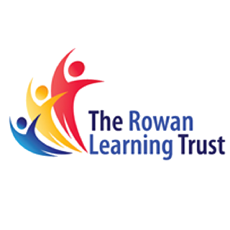English
Mission Statement
It is our vision that all Plantation pupils will be life-long readers who can read texts both for pleasure and for understanding. Our children will be confident in their spoken and written communication and keen to develop their language skills beyond school and into their adult lives.
Intent
Reading: Through an outstanding curriculum, our primary school aims to cultivate a love of reading so that pupils leave our school as lifelong readers. Our high-quality reading curriculum means children develop the skills they need to be confident, fluent readers, whilst our passion for reading means children develop a love and appreciation of literature.
Writing: We use our love of reading to elevate our writing standards. Our children read and study the work of amazing writers which inspires them to produce their best work. We ignite a passion for clear and accurate writing, so that children leave our school able to write for a range of audiences and purposes.
Speaking and Listening: We feel the spoken language underpins the development of reading and writing. We ensure that pupils are able to continually develop competence and confidence in their speaking and listening skills so that they can communicate effectively in a range of familiar and unfamiliar environments. We want children to thrive whilst being part of a language rich culture within our school.
Implementation
Reading: Our reading curriculum begins with systematic phonics sessions that start in Foundation Stage and develop throughout Key Stage One, to develop decoding and word recognition through the Read Write Inc scheme.
This is all built on in Key Stage Two, as well-structured lessons give children the skills they need to develop independence, fluency and understanding. Supported by Pathways to Read we deliver four whole class shared reading lessons per week where we provide a progressive and sequential approach to reading. There are follow on reading tasks to enable pupils to evidence the skills they have mastered independently. For pupils still needing support with phonics, we provide an individual reading programme that has phonetically decodable texts at the heart of it.
We continually expose children to a range of high-quality texts to ignite joy and curiosity in our pupils. Staff and children frequently read together during ‘Story Time’ and our bespoke grouped/individual reading sessions.
Writing: Through dedicated writing instruction, scaffolded support, and targeted interventions, we will empower students to develop their writing skills progressively. Using high quality texts through ‘Pathways to Write’, children are given plenty of opportunity to write with enthusiasm and joy. Skills are built up through repetition within the units and children apply these skills in the writing activities provided. Excellent teaching and support ensure children understand and apply the conventions of Standard English while expressing their ideas with confidence and clarity. Handwriting is explicitly taught throughout English lessons and children learn to take pride in their work.
Speaking and Listening: Spoken language underpins all of our lessons, through discussion, sentence or paragraph rehearsals, performances and speaking aloud to evaluate or edit work. Children are given plenty of opportunity to communicate across a range of contexts and to a range of audiences.
We also follow the WellComm programme throughout our school, which helps to identify children who may have barriers to their speech and language development. We support these children early in their education journey to help them reach age related expectations in their spoken language.
Early Years Foundation Stage
The English Curriculum is delivered using the following documents:
Early Years Foundation Stage Framework (2021)
The Early Learning Goals are followed to ensure continuity and progression from the Foundation Stage through to the National Curriculum.
Read, Write Inc. Phonics
The Drawing Club
WellComm
Key Stage 1
The English Curriculum is delivered using the following documents:
National Curriculum 2013
Read Write Inc Phonics
The Literacy Company Pathways to Read and Write Programme
Read Write Inc. Spelling Programme (Year 2 only).
Plantation Primary’s Programme of Study for Handwriting.
WellComm
Key Stage 2
The English Curriculum is delivered using the following documents:
National Curriculum 2013
The Literacy Company Pathways to Read and Write Programme
Read Write Inc. Spelling Programme
Plantation Primary’s Programme of Study for Handwriting.
Wellcomm
Impact
We see competent speakers, writers and readers, who feel a true sense of achievement. Children are able to confidently express their thoughts, ideas and imaginations through spoken and written word. Due to continuous exposure to high-quality texts, children are able to use a vast variety of rich vocabulary. As all aspects of English are an integral part of the curriculum, we ensure that skills taught are transferred into other subjects. Children are able to appreciate the importance of speaking, listening, reading and writing in the outside world and leave Plantation Primary School with high aspirations, that will continue to grow and develop as they do.

